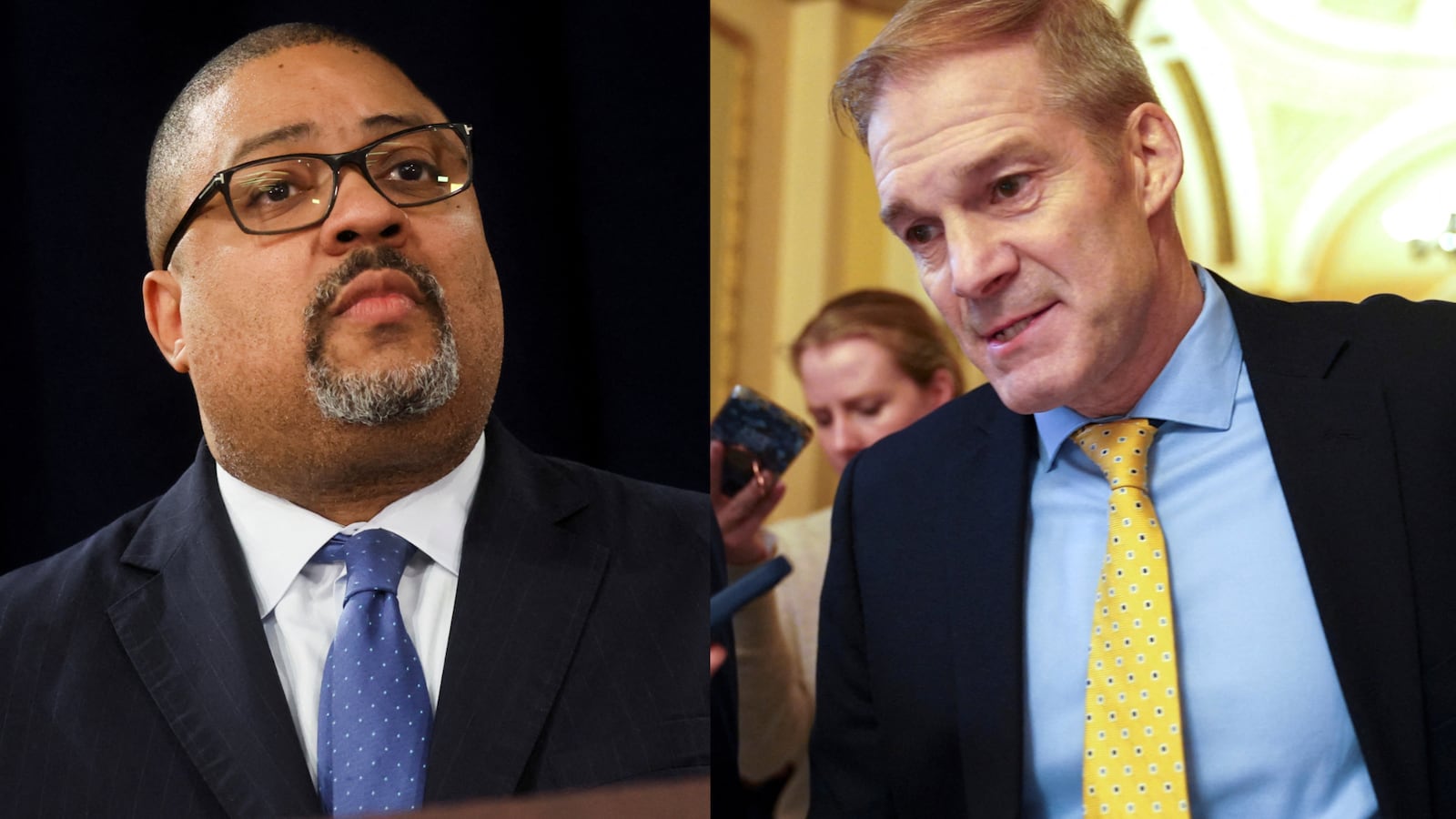Faced with retaliation from MAGA Republicans for indicting former President Donald Trump, the Manhattan district attorney has taken the remarkable step of suing to stop a congressional committee from meddling in his active criminal case.
On Tuesday, DA Alvin Bragg Jr. filed a lawsuit in Manhattan federal court against Rep. Jim Jordan (R-OH), citing “a campaign of intimidation, retaliation, and obstruction.”
Jordan has turned his new role as head of the House Judiciary Committee—which is normally tasked with holding government agencies accountable—into a weapon against Democrats that is laser-focused on vengeance in defense of Trump.
In recent weeks, Jordan has warned he plans to use his congressional authority to worm his way into the New York County DA’s case against the former president. A nearly four-year investigation into Trump’s business practices resulted in a historic, 34-count indictment last month alleging that he faked company records to hide a hush-money payment to a porn star to cover up his extramarital affair. Upon news of the coming indictment, Jordan sent unprecedented warning letters to the DA, demanding to know sensitive information about the ongoing investigation.
Bragg’s staff pushed back, but Jordan refused to relent. Two days after Trump’s arraignment in court last week, Jordan then subpoenaed Mark Pomerantz, a former prosecutor on that team who has since written a memoir about the investigation.
Bragg’s lawsuit seeks to halt Jordan in his tracks and keep him from dragging Pomerantz before Congress to testify on April 20—an event that would make for must-see TV, all in the service of satiating MAGA devotees who think the Trump criminal case is nothing more than a political prosecution.
Bragg’s office contracted Theodore J. Boutrous, Jr., a renowned First Amendment lawyer in Los Angeles, for the case.
In a legal memo asking a federal judge to issue a temporary restraining order against Jordan’s committee, Boutrous cautioned that “this unprecedented federal intrusion into a state criminal prosecution exceeds Congress’s authority under Article I of the Constitution and frustrates New York’s prerogative to enforce its own criminal law.”







